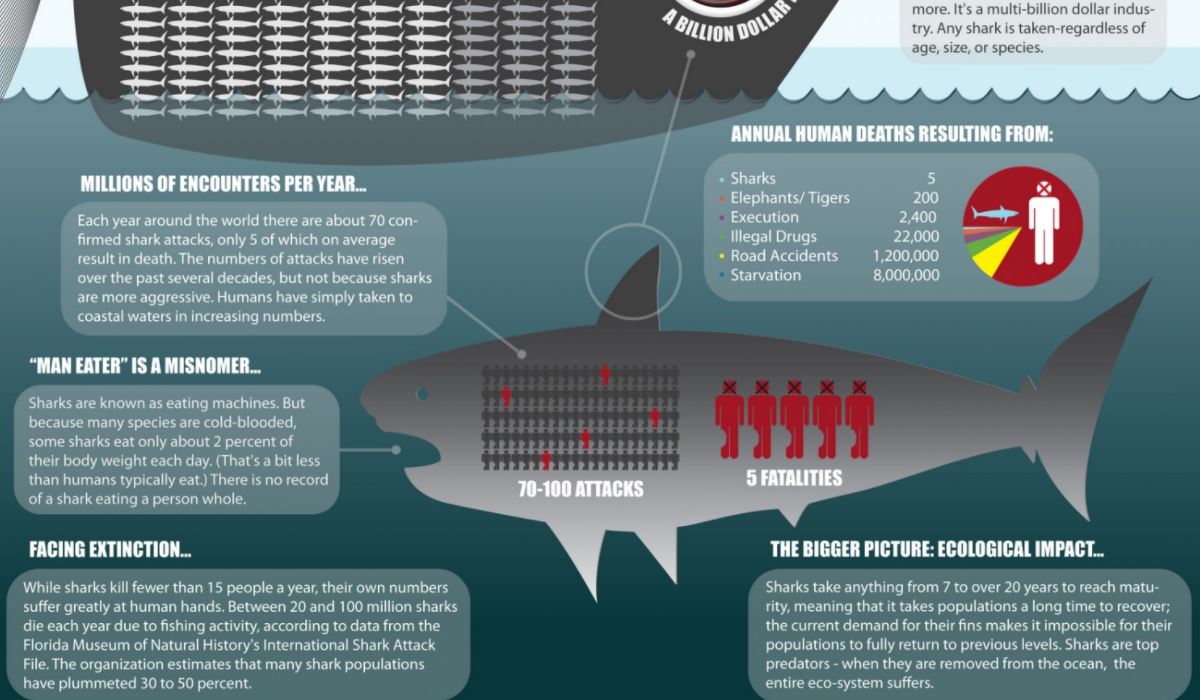As far as scientists understand, sharks have no desire to attack or eat humans. Web when a surfer paddles out to catch a wave, their silhouette creates an image of a shark swimming below.
Why Do Sharks Actually Attack Humans? Shark Week Discovery
The bahamas is home to swimmers in large numbers who likely think nothing of the aquatic life living just under the waters.

Why are sharks attacking humans. Shark attacks on humans are rare, but they do happen. According to these sources, the attack occurred due to merchants discarding animal remains into the sea. Sharks have a reputation for being ruthless predators, but they do not intentionally seek out.
It’s a very rare event, so that in itself tells you something. White, tiger, and bull sharks. If a shark sees a human splashing in the water, a case of mistaken identity can lead to an attack.
Web even for those species that are, humans aren’t preferred prey. Show more 8 june 2023. Web why do sharks bite people?
Web most bites happen by accident, when a shark mistakes a moving limb for a fish or a surfboard for a seal. Web in the wake of nsw's latest shark attack fatality, macquarie university’s head of biological sciences, professor nathan hart, explains why sharks don’t naturally hunt humans and how their poor eyesight could be to blame. Of the hundreds of shark species, there are three most often responsible for unprovoked shark attacks on humans:
Web a shark will normally make one swift attack and then retreat to wait for the victim to die or weaken from shock and blood loss, before returning to feed. The concerning and sadly often fatal attacks on surfers and swimmers are attributed to three main culprits and that's white sharks, tiger sharks and bull sharks. Web after three recent fatal shark attacks in egypt, this film investigates whether pressure from human activity and climate change is altering the behaviour of sharks.
Web the oversimplified prevailing wisdom, until recently, attributed shark attacks on humans to misdirected feeding attempts. Web why do sharks attack humans? Web they aren't looking to eat us, and they aren't even a danger to us.
Web a study by australian scientists suggests great white sharks may attack humans because they can not visually distinguish surfers and swimmers at the water’s surface from their natural prey. When a shark attacks a human, it's usually because they are confused or curious about what's happening. Web it was confirmed that there were no other injuries besides those inflicted by the shark.
Recently, however, a new study challenges this theory. Against a bright sky in the water, a human could resemble the body of a seal or a shark's favorite prey. We've commonly heard that this is why sharks attack humans.
Web “provoked bites” occur when a human initiates interaction with a shark in some way. Patterns of attack also seem to differ for humans compared to seals. Reasons sharks attack humans so if sharks don’t want to attack or eat humans, why do shark.
Web when sharks do attack humans, they are typically confused or curious. This protects the shark from injury from a wounded and aggressive target; When they realize their mistake, they move on, which is why most shark encounters result in.
Updated on july 24, 2019. These three species are dangerous largely because of their size and tremendous bite power. Web it has long been thought that the reason sharks attack humans is because they mistake us as seals, which are one of the most common meals for sharks.
We really don't understand why sharks sometimes bite humans. Web however, this idea has recently been challenged. There are many instances of sharks spitting out or vomiting up human flesh, suggesting they do not enjoy the taste or substance in any capacity.
Furthermore, they don’t attack people that often—certainly not enough to warrant their stereotype. However, it also allows humans time to get out of the water and survive. It's not like they have hands to feel around, so they do what they can to understand what's happening.
Sharks species that do not feed on seals have been found to bite humans. Now, new research simulating the way that a shark would view the world has shown. There have long been theories that when great white sharks bite humans, it is a case of mistaken identity.
For instance, when divers are bitten after harassing or trying to touch sharks. That is, we thought that sharks took a bite or two out of humans because they looked like food and, in most cases, decided that they weren’t, to the sometimes fatal detriment of the bather in question. Web the rate of shark attacks has remained relatively stable.
Web chapman says that yes, the number of shark attacks per year is increasing, but this isn't in line with the skyrocketing human population.

Infographic Sharks Vs. Humans; Who's The Real Threat? OutdoorHub
Comments